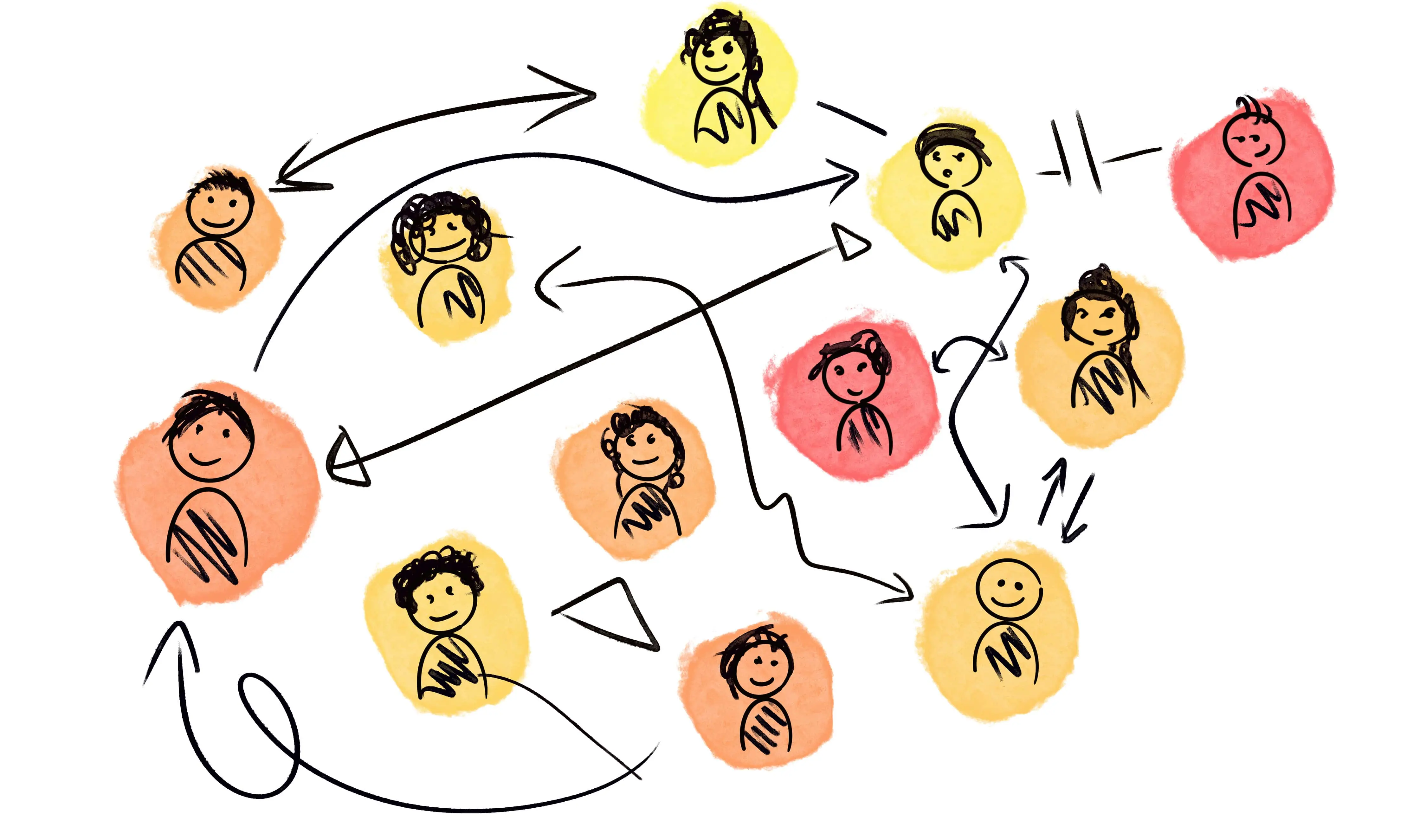Innovation Management: Idea Development and Relational Analytics

The first phase of the innovation process is the idea development phase. This phase relies on the creativity of employees. Novel ideas and new solutions are often discovered by employees who think about ways in which they can do their job more efficiently or effectively.
In most organizations, employees need their colleagues to further develop their ideas. Someone can come up with a new solution for a problem, only to find out that her colleagues do not want to support it. It can also happen that someone has an initial thought and uses his colleagues as a sounding board to further develop it.
In this lecture, we are going to explore the social side of the idea development phase. We will discuss the journey of an idea from its conception to its implementation using the article of Perry-Smith and Mannucci (2017). They identify four different phases that have their own needs and outcomes: idea generation, elaboration, championing, and implementation.
Each of the four phases of the idea journey are influenced by the workplace relationships that employees develop and maintain. To understand how and why these relationships influence the idea journey, we will discuss the advantages of a social network lense. A social network lense views an organization as consisting of employees, their characteristics, and their relationships.
There are two types of structural positions in the intra-organizational social network that offer advantages and disadvantages when it comes to the generation of novel ideas. Bridging social capital—connecting otherwise unconnected colleagues—stimulates the generation of novel ideas because it provides access to nonredundant information. Bonding social capital-connecting colleagues that are directly connected to each other—suppresses the generation of novel ideas because of its lack of nonredundant information.
Finally, we will discuss how social network analysis can be a valuable human resource management tool. Using the article of Leonardi and Contractor (2018), we will identify several network signatures that typically exist in an organization.
Literature
- Leonardi, P., & Contractor, N. (2018). Better people analytics. Harvard Business Review, 70–81. https://hbr.org/2018/11/better-people-analytics
- Perry-Smith, J. E., & Mannucci, P. V. (2017). From creativity to innovation: The social network drivers of the four phases of the idea journey. Academy of Management Review, 42(1), 53–79. https://doi.org/10.5465/amr.2014.0462
Innovation and Entrepreneurship in Context
This lecture is part of the course Innovation and Entrepreneurship in Context 2021-2022 at the Radboud University Nijmegen. The course is compulsory for students of the Master of Science (MSc) specialization in Innovation and Entrepreneurship.
The course has three lecturers: Caroline Essers, Yvonne van Rossenberg, and me. I gave four lectures on innovation management:
- Innovation Processes and Innovation Management
- Idea Development and Relational Analytics
- Idea Selection and Portfolio Management
- Idea Implementation and Organizing for Innovation
Related Posts

Teaching Lectures
A lecture on innovation management, focusing on the generation of ideas, social networks, and social capital.

Teaching Lectures
Innovation thrives when firms manage both individual talent and the networks connecting them.

Teaching Lectures
From issue-selling to execution: how social dynamics shape idea championing and implementation.

Teaching Lectures
This lecture explores how networks and social capital fuel idea generation and elaboration in innovation.